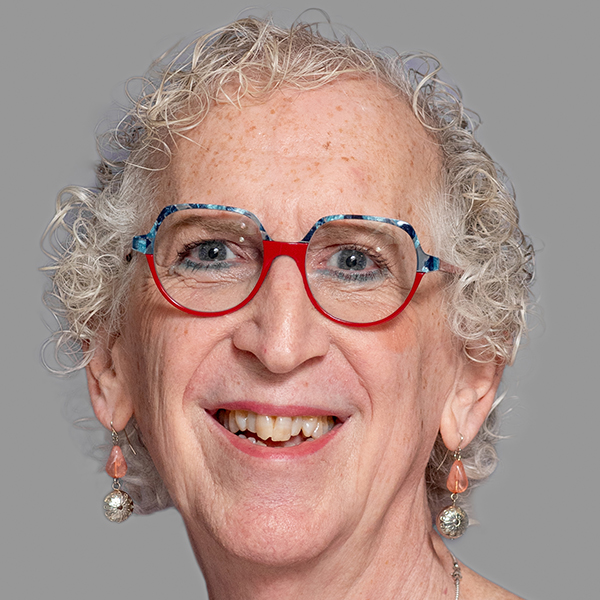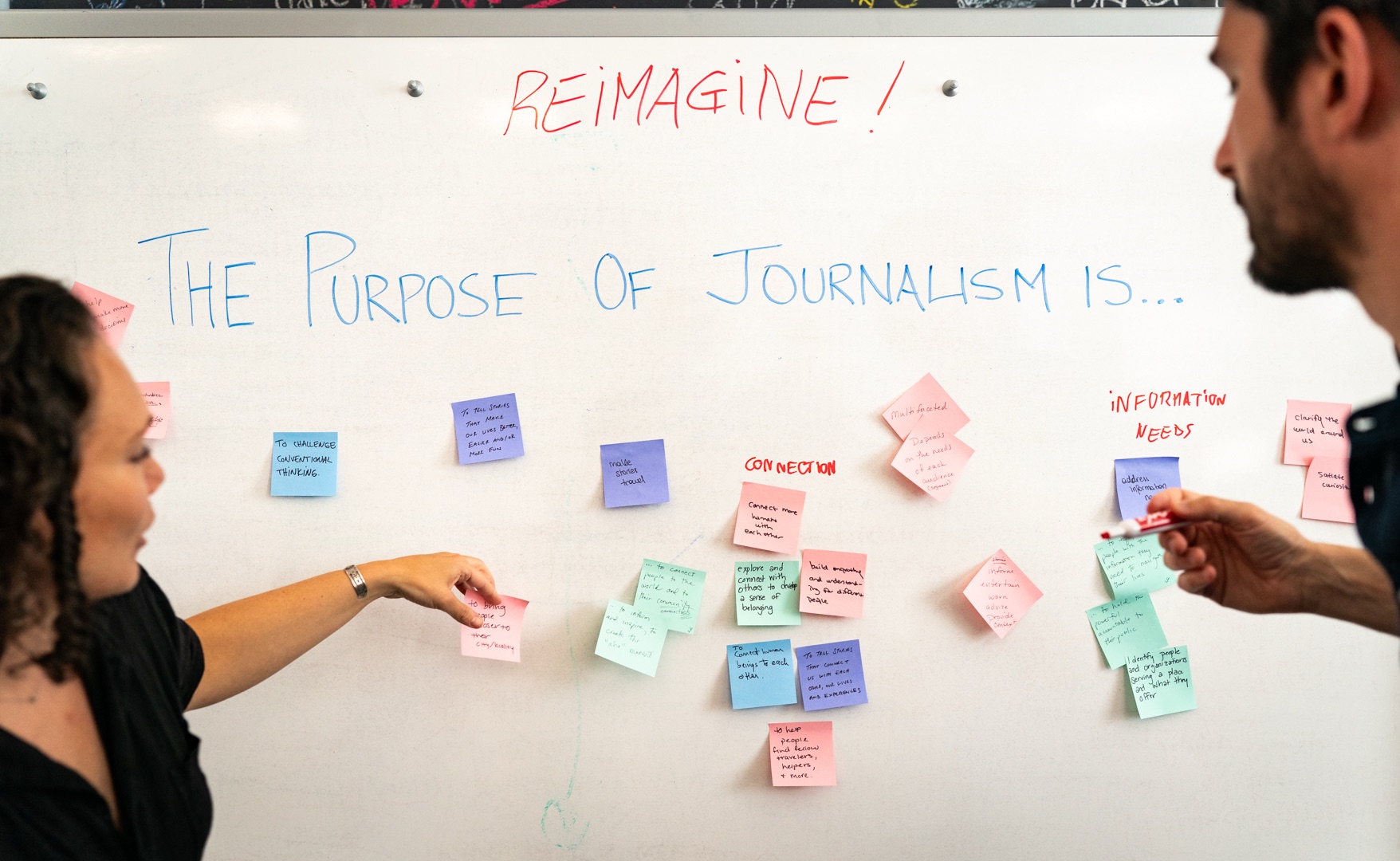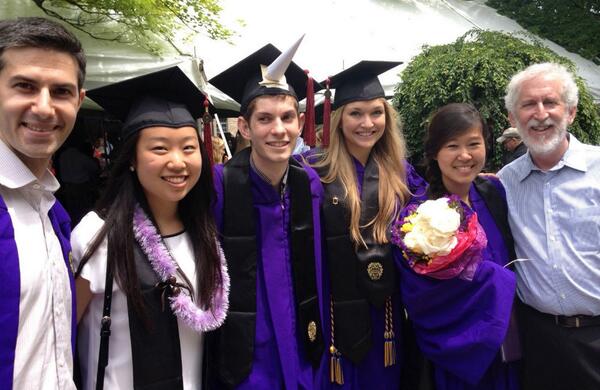
Hilary Fung; Dan Hill; Sarah Adler; Katie Zhu, Prof. Rich Gordon
The Knight Lab produces software -- but not just software. We also help produce a new generation of journalists who can thrive at the intersection of journalism and technology. The lab is contributing to Northwestern's educational mission, while also giving students a platform to prepare themselves to have an impact after they leave.
Cases in point: five students who graduated from Northwestern in June, four from the Medill School and one from the McCormick School of Engineering and Applied Science. Several of them have taken to calling themselves "unicorns" -- because journalists who code have historically been a rare species. In email interviews, here's what they said about how the Knight Lab influenced their Northwestern experience and shaped their career directions.
Sarah Adler (major in journalism)
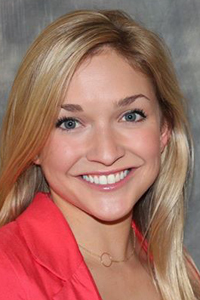
Sarah was a designer of print publications initially, "but I realized that I'd be able to get involved in so much more if I learned how to translate designs into front-end code," she said. She got involved with the Northwestern chapter of the Society of News Design and took the advanced interactive design class taught by Medill Assistant Prof. Jeremy Gilbert, one of the faculty associated with the Knight Lab. She also enrolled in one of the "collaborative innovation" classes created by Knight Lab faculty -- in which journalism and computer science students are assigned to small teams to build an application relevant to journalists, publishers or media consumers.
Through her connection with Gilbert, Sarah was engaged to help design the interface for the Knight Lab's "NATO in Chicago" project, which aggregated social media coverage of the NATO summit in May 2012. She also helped create the Knight Lab's logo and typography and developed the user interface for the lab's BookRx project.
"I also loved the meet-ups and conferences that were related to the Lab and opened my eyes to the ways the community could exist in different places," Sarah said.
As a student, Sarah co-founded Northwestern Spoon, an online publication focusing on food for college students. Since graduation, she has taken the entrepreneurial route -- trying to build Spoon into a national network of sites they are calling Spoon University. Knight Lab executive director Miranda Mulligan has been serving as a mentor for the project.
"The Knight Lab was a huge part of my journalism experience," Sarah said. "Mostly it gave me access to professors and faculty that I never would have had otherwise. It let me practice skills that I wouldn't have developed otherwise, and presented me with projects that put those skills to work in a very real, rewarding way."
Sarah's personal website is online at http://sarahadler.me. You can follow her on Twitter at @saraheadler.
Hilary Fung (major in journalism)
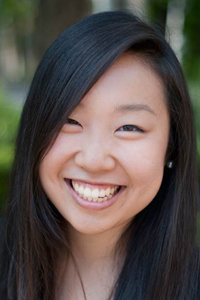
Like many journalists who got interested in code, Hilary was originally motivated by her interest in design, which started before college. Like Sarah, she became active in the Northwestern SND chapter. "As I learned more about the web, I realized that learning to code was the only way to design things that truly felt at home on the web — and to make sure I wasn't relying on someone else to execute my ideas," she recalled. "As I learned more, I started to see how code was its own medium and how coding made new, really cool things possible."
She enrolled in EECS 110 (Introduction to Computer Programming in Python) and EECS 130 (Tools and Technology of the World Wide Web). And she enrolled in one of the "collaborative innovation" classes. In her classes, she met faculty and students "interested in the same things I was."
For the Knight Lab, Hilary worked on the front-end designs for Tweetcast (an app that predicted people's preferences in the presidential election based on the content of their tweets) and Refine (a prototype that helps people find relevant content in a long string of comments like those on most news sites).
What did the Knight Lab provide to Hilary? "The opportunity to meet and work with some awesome professionals," she said.
This summer, Hilary is an intern in the design and graphics department for the Boston Globe. She doesn't yet have her plans worked out for the fall. You can keep up with her at http://www.hilaryfung.com/ and on Twitter at @hil_fung.
Dan Hill (major in journalism, minor in computer science)
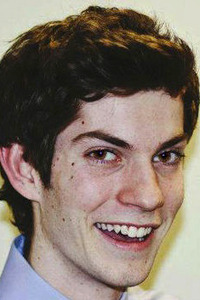
Dan got interested in data-driven journalism as a high school student in Sacramento -- seeing databases and interactive maps created by Phillip Reese at the Sacramento Bee. At the end of his freshman year at Northwestern, he met Brian Boyer, who then headed the news applications team at the Chicago Tribune (and previously earned a journalism master's degree at .
"He encouraged me to learn Python and read Edward Tufte," Dan recalled. The Tribune's nursing homes and homicides apps showed him how learning to write software would help him do better investigative reporting.
So Dan decided to minor in computer science, adding nine CS courses to his journalism major. "Writing code didn't come as easily to me as writing copy always did, but the computer science classes helped me apply computational thinking to journalism problems and understand the lingo I heard at Hacks/Hackers meetups," he recalled. He also enrolled in one of the "collaborative innovation" classes, in which Dan's team worked on a project called MetroVote.
MetroVote pulled in a variety of information and data about political candidates and presented it to people interested in the elections in which the candidates were running. Elements of this project were ultimatedly included in the Knight Lab's Congressional Primaries project last year.
This past spring, he participated in MigraHack as part of the National Day of Civic Hacking. He made a "Draw the Border" game and won an award in the competition. Hill also wrote some great articles for Knight Lab about algorithms, statistics and web scrapers.
How did the Knight Lab help him? "The Lab gave me space and support to explore data journalism topics in depth." And his work on MetroVote led to his winning an internship last summer at the Washington Post. He reflected on his experience in a post on his personal website headlined "How to train your unicorn."
This summer, Dan is an interactive graphics intern at the Wall Street Journal. He doesn't know yet what he'll be doing in the fall. You can follow what he's up to on the Web http://www.danhillreports.com, and on Twitter at @DanHillReports.
Dhrumil Mehta (major in computer science)
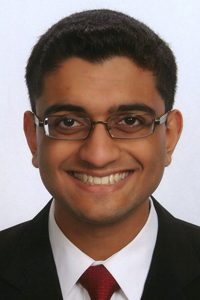
Dhrumil first became involved with the Knight Lab in his senior year. "I wish I had discovered it sooner," he said. He got the opportunity to work with Medill Associate Prof. Zach Wise and Joe Germuska, the Lab's software engineering director, on a WordPress plugin that's still in development.
The most transformative aspect of his Knight Lab experience was being part of the Northwestern contingent attending the National Institute for Computer-Assisted Reporting (NICAR) conference in Louisville, Ky., in early March. "I had no idea that there exists a community at the intersection of journalism, civics and technology before that, and it allowed me to envision building a real career in this space."
He reflected on his experience in a popular post he wrote for the Knight Lab blog: Numbers and narrative: A computer scientist at NICAR.
At Northwestern, Dhrumil had previously been working on a political science project (www.politicalframing.com) in which he applied natural-language processing and machine-learning techniques to analyze congressional speeches and understand the way Democrats and Republicans frame political issues differently. At NICAR he discussed the project with several journalists, leading him to an opportunity this summer to work as a part-time data-consultant for a project with USA Today. At the same time this summer, he is working at Harvard University's Berkman Center for Internet and Society on the Media Cloud project.
For Dhrumil, the Knight Lab gave him his first exposure to journalists and journalism, inspiring him to think differently about the role a technologist can play in society.
"I feel like technologists are in a uniquely empowered position to participate in democracy and we have a uniquely empowered position in influencing policy. I don't think most of the students in the engineering school realize this - and frankly they should," he said. "Organizations like the New York Times or Washington Post or Sunlight Foundation should be there at the engineering school, showing technologists that they can be civically engaged and build a career doing this kind of awesome work."
Dhrumil will go to work as an engineer for Amazon this fall and plans to look for future career opportunities in media or civic technology. His personal website is http://www.dhrumilmehta.com/. He's on Twitter at @journalismyay
"Working at the Knight Lab really threw a curve into my career trajectory - I discovered a whole new world that I am now knee-deep in and hope to continue to develop in," he said. "I hope to use my technical prowess to improve civic engagement and the democratic process and in general bring positive change to people's lives.
Katie Zhu (double major in journalism and computer science)
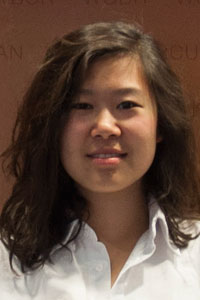
Katie was a very unusual journalism student at Northwestern. She got interested in programming as far back as high school. She learned basic HTML coding on sites like Geocities and Neopets.
At Northwestern, she worked on North by Northwestern, a student-run online publication, where she said she was "fully exposed to the power of interactivity in storytelling."
"From there, I guess the last push to learning how to code was watching The Social Network," Katie said. "That scene where Zuckerberg is just snubbed by his girlfriend, and he sits down and hammers back 10 beers, but is still able to effortlessly take a random idea and build something impactful out of that … I remember watching that and thinking, 'I want to be able to do that.' "
Katie decided to double-major in journalism and computer science and began working with the Knight Lab almost from its inception. She also enrolled twice in the "collaborative innovation" classes. In the most recent class in the spring, her team created Slimformation, a tool that tracks media consumption to improve a user's "information diet."
At the Knight Lab, Katie worked on implementing a new website branding strategy, helped with server migration and did initial development on a new student-projects area of the Knight Lab website. She also participated in Knight Lab events and attended conferences such as MozFest and NICAR.
"The network and community that the Knight Lab has created has been invaluable," Katie said. "I've had opportunities to work with and meet amazing people."
This summer, Katie is an intern on the interactive team at The New York Times. She joins Medium as a software engineer in the fall. Katie's website is http://kzhu.io/. You can find her on Twitter at @ktzhu.
About the author
